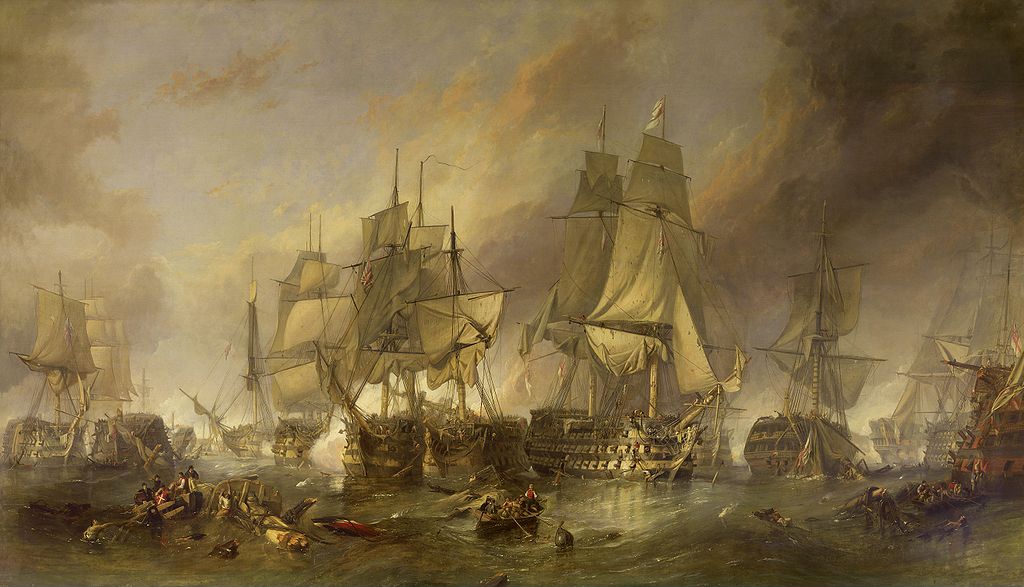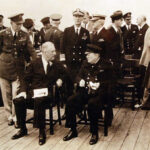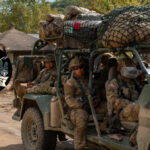
In this fourth episode of War Room’s special series on Great Strategists, Patrick Bratton explores Alfred Thayer Mahan’s The Influence of Seapower upon History and its relevance to the 21st century. Writing at the turn of the 20th century, Mahan was explicitly thinking about the role of sea power for the United States as it emerged onto the world stage, and his ideas, though very influential at the time, have fallen somewhat out of favor in more recent thinking about sea power. Mahan’s emphasis on big fleets and decisive battles have led some to dismiss Mahan as hopelessly out of date, but Mahan was also writing about broader political questions about the maritime domain. And in the 21st century, rising powers, particularly in Asia, are reading Mahan quite seriously, so it remains a text worth reading and exploring seriously. War Room podcast editor Jacqueline E. Whitt moderates.
There [are] a lot of preconceived notions about Mahan. . . I got it. Big fleet. Big guns. Big battleship. World War II proved him wrong. Moving on! There’s a . . . way of dismissing Mahan and a lot of his more interesting aspects to his writing.
Podcast: Download
Subscribe: Apple Podcasts | Spotify | Amazon Music | Android | Pandora | iHeartRadio | Blubrry | Podchaser | Podcast Index | TuneIn | Deezer | Youtube Music | RSS | Subscribe to A Better Peace: The War Room Podcast
Patrick Bratton is Associate Professor of Strategy and National Security at the U.S. Army War College. Jacqueline Whitt is Associate Professor of Strategy at the U.S. Army War College. The views expressed in the podcast are those of the speakers and do not necessarily reflect the views of the U.S. Army War College, U.S. Army, or Department of Defense.
Image: The Battle of Trafalgar by William Clarkson Stanfield.
Image Credit: Clarkson Frederick Stanfield [Public domain], via Wikimedia Commons
Posts in the “Great Strategists” series:
- ON CARL VON CLAUSEWITZ (EPISODE 1)
(GREAT STRATEGISTS) - SUN TZU AND THE ART OF WAR (EPISODE 2)
(GREAT STRATEGISTS) - KAUTILYA, THE ARTHASHASTRA, AND ANCIENT REALISM (EPISODE 3)
(GREAT STRATEGISTS) - THREE PIONEERS OF AIRPOWER
(GREAT STRATEGISTS) - JOHN BOYD AND THE “OODA” LOOP
(GREAT STRATEGISTS) - JOHN WARDEN AND THE ENEMY AS A SYSTEM
(GREAT STRATEGISTS) - BEYOND THUCYDIDES: HERODOTUS, XENOPHON & UNDERSTANDING WAR
(GREAT STRATEGISTS) - THE NATURE AND CHARACTER OF WAR — THUCYDIDES
(GREAT STRATEGISTS) - A SCIENTIFIC APPROACH TO WAR? ANTOINE-HENRI JOMINI
(GREAT STRATEGISTS) - HOW MUCH FOR THE PEN? SCHELLING
(GREAT STRATEGISTS)





A major cause of the seemingly differences between the writings of Mahan and Corbett was due to their different aims. Mahan tried to persuade US government to “invest” in the creation of a powerful Navy, while Corbett’s aim – as GB was already “the” major sea power of the world and deeply realized the need of a powerful Navy – was to write down in an organized, comprehensive and clear way the principles of maritime strategy.